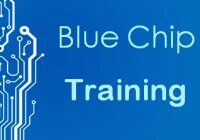 Overview
Overview
Jenkins is an open sourced automation server for continuous integration and continuous delivery (CI/CD) . Docker is a service platform for delivering software in containers. Jenkins and Docker together optimizes and simplifies the CI/CD process by allowing for more reliable deployment and testing environments.
This instructor-led, live training (online or onsite) is aimed at DevOp engineers who wish to optimize and simplify the CI/CD process with Docker and Jenkins.
By the end of this training, participants will be able to:
- Automate code delivery and pipeline deployment with Jenkins.
- Build an application using Docker and Docker File.
- Configure authentication options to strengthen security.
Format of the Course
- Interactive lecture and discussion.
- Lots of exercises and practice.
- Hands-on implementation in a live-lab environment.
Course Customization Options
- To request a customized training for this course, please contact us to arrange.
Requirements
- An understanding of software development
Audience
- DevOps Engineers
Course Outline
Introduction
Jenkins Basics
- Processes and modules used in Jenkins
- Plugins for integrating with Jenkins
Overview of Docker
- Processes and elements used in Docker
- Docker vs virtual machines (VM)
Preparing the Development Environment
- Intalling and configuring Jenkins
- Installing and configuring Docker
- Installing and configuring NPM
- Setting up a version control system
NodeJs Application
- Creating a simple NodeJs application
- Running a NodeJs application on Jenkins
- Packaging a NodeJs application as a Docker image
CI/CD with Jenkins and Docker
- Building a composable architecture
- Using Docker CI/CD tools
- Building and managing Docker images
- Creating multi-branch pipelines
- Using DNS-based deployment
- Deploying using a cloud based-server with Jenkins
- Monitoring and reverting
Jenkin Slaves and Authentication
- Using best practices with Jenkins slaves
- Setting up a slave using SSH
- Setting up a slave using JNLP
- Using SSH credentials
- Implementing authentication providers
Troubleshooting
- Writing an integration test
- Wiring an integration test
Summary and Conclusion
